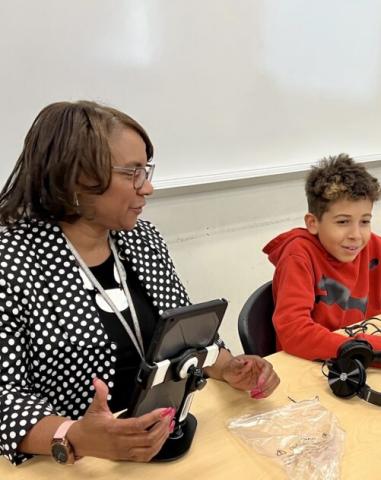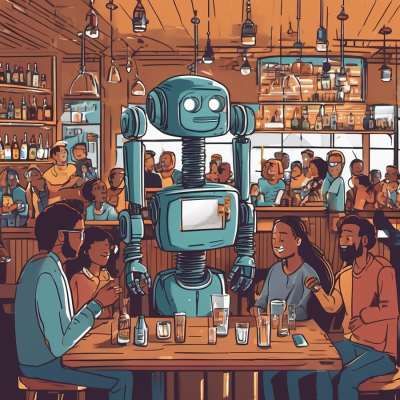Cognitive Science and Behavioral Science
Understanding people is essential to studying how we interact with computers. The way our users think, perceive, behave, learn, and even how they become frustrated, can be used to inform better, more user-friendly designs and systems. For example, being aware of cognitive load (the mental memory required for processing info and completing a task) helps designers to create interfaces that are easy and intuitive to navigate.
Understanding human behavior is also essential to designing better systems and interactions. In HCI, the behavioral sciences help us to understand how people make decisions and interact with technology. Elements from behavioral sciences are used to inform our persuasive designs, encourage healthy habits or improve user engagement.
Students who want to learn more about how cognitive and behavioral sciences are applied to HCI might be interested in the following courses:
-

HCII Alum Reimagines Online Spaces for All
NEWSHow we spend time online and participate in virtual spaces can impact how we show up offline, at everything from town halls to book clubs....
-

Is AI Becoming Selfish?
NEWSNew research from Carnegie Mellon University's School of Computer Science shows that the smarter the artificial intelligence system, the m...

-
What’s Next for AI and Education
NEWSThe Human-Computer Interaction Institute (HCII) had a large presence at three educational technology-focused conferences last month in Pal...
-

Three Seed Grants Awarded for Generative AI and Education Research
NEWSCarnegie Mellon University, as a leader in technology for education, provides tools and methods for CMU and the broader education communit...
-

Practice Makes Perfect
NEWSWhile lectures are often considered a key element in teaching, research from Carnegie Mellon University's School of Computer Science demon...
-

SCS Faculty Receive Google Academic Research Awards
NEWSNine School of Computer Science faculty members recently received Google Academic Research Awards, which aim to fund and actively collabor...
-

Less Is More: 'Stingy' Bots That Hoard Resources Can Still Boost Human Relationships
NEWSA recent study from Carnegie Mellon University and Cornell University researchers unveiled how artificial intelligence impacts human welfa...
-

CMU Researchers Find Cooperation Takes a Backseat in Automated Game of Chicken
NEWSAn experiment in which people played games of chicken with partially automated toy cars suggests that social norms, such as taking turns, ...
-

Study Questions Benefits of Social Networks to Disaster Response
NEWS Communication Within Groups Not as Helpful as AnticipatedFaced with a common peril, people delay making decisions that might save li...

